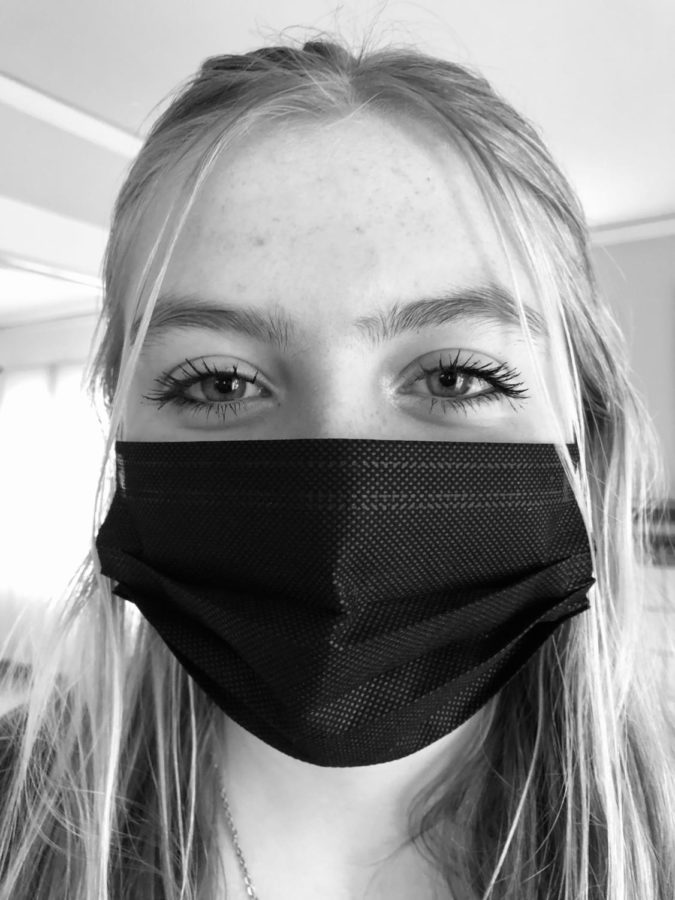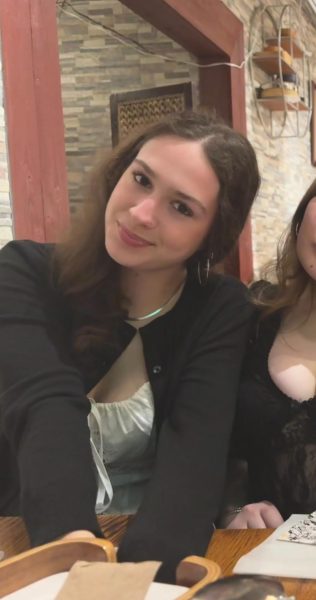Quaranteen
World War II, the moon landing, the Vietnam War and its protests, and 9/11 are all generation-defining events. As Gen Z grows and matures into full-fledged teenagers, this begs the question: What will be ours? In March of 2020, we got our answer.
The first case of COVID-19 was reported on Dec. 31, 2019, in Wuhan, China. But the real drama started on Jan. 21, 2020, when COVID-19 was first officially reported on United States soil in Washington state. Most of the people around me brushed it off like it was nothing. I remember telling my friend that I was kind of nervous about the whole thing: What if it’s a lot bigger than we think it is? She told me it was probably just some sort of flu or pneumonia, nothing to actually worry about. But I did worry. While the scale of the pandemic was small then, who knew what it would become. The unknowns and questions of it all were the scariest part. At least teenagers still had school, some sort of constant. Of course though… that didn’t last very long.
On March 12, 2020, the first state–Ohio– announced that it would be closing all schools statewide.
The governor of Ohio, Mike Dewine, on that day tweeted: “We have a responsibility to save lives. We could have waited to close schools, but based on advice from health experts, this is the time to do it.”
Later that day, Kate Brown, the governor of Oregon, announced that all K-12 schools would close from March 16th to the end of March.
March 13–a Friday–rolled around, and the middle school I was in then was lively and joyful. I mean, who wouldn’t be when you just found out you’re getting an extended spring break. The work that day was easy and quick, conversation light.
“It felt very temporary, and like I thought it was going to be kinda like a little break,” explained sophomore Lucy Kniser.
But as this “break” kept getting extended further and further in time, that temporary feeling was fading from our minds. Governor Brown declared a lockdown; people had to stay home, away from others. Days grew slow and the loneliness was like a kick to the stomach, harder and more painful each day. It felt like the movie Groundhog Day, except it chose the most boring, uneventful, mundane, dull day of all time to repeat.
“Everyday just felt boring, each day replaying time and again on a loop, slowly it became quite vacant… unbearable even,” sophomore Mai Nguyen said.
Just like that, the world most teenagers thought they knew was ripped from them and a poor replacement put in its place. Although there were some positives gained from quarantine, it generally wasn’t an easy or a fun time. Struggle after struggle presented itself.
Mental health was a big one for many people, but especially for teenagers. Anxiety and depression were like huge giants that cast large shadows over you, their mouths filled with razor-sharp teeth– grinning at their next meal.
“During Covid, I definitely would say it got really extreme to the point where like I wouldn’t go out of the house because I was just so afraid of like everything,” said freshman Emilia De La Rosa, on her social anxiety during quarantine.
The world was at a place where it felt like anything could happen. Halfway through 2020, we had already dealt with a worldwide pandemic, Kobe Bryant’s death, Australia being on fire, and murder hornets–perhaps a zombie apocalypse was even on the horizon. The point is, everything around us was a big unknown; it felt like there was nothing we could do about it. We could only stay home, holed up in the same spot we had been for months.
With the dense shadows of anxiety came the struggle of teenagers staying motivated within the lack of structure. Schools across the country were shut down to prevent the spread of COVID-19. Normally teenagers are at school 8:30 a.m. to 3:30 p.m., five days a week, nine months out of the year. In a way, it becomes a second home. It’s teenagers’ whole social realm. We see our friends, teachers, and even if we don’t talk to everyone, we see people! The simple, “Hellos,” and “Can I borrow a pencil,” are small, but meaningful parts of the human experience. The closure of schools prevented that.
Of course, there was the option of seeing friends still. But for some, it felt like a constant tug of war on whether to hang out with friends and risk being exposed, or stay home and keep your family safe. I felt as if experience after experience of my teenage years were flying past me. I wanted to keep myself and my family safe from this killing machine, but I also wanted to live and make memories.
With in-person school being shut down, online school became the new normal: 9:15 a.m. Monday through Friday, students across the country logged into their online classes, entered zoom, and attempted to focus and engage with their class and teacher through a screen. Many teens didn’t even attend their online classes.
“There was no social aspect of it, it was very dull…” freshman Emerson Oliver said, describing her experience during online school.
The desire and inspiration to work hard at school was not there. How do you stay motivated when there is nothing to be motivated for? When a million distractions are waiting at your beck and call? A “what’s the point,” feeling probably crossed everyone’s mind during quarantine, especially for teenagers during online school.
But behind every rainstorm is a rainbow. Being able to grow from and thrive (at least a little) in bad situations is an important life skill. While many people in 50 years time will probably only look back on the bad things that happened during quarantine, I think it’s valuable to look back on the positives too, no matter how small.
While the long and empty periods of time to kill weren’t always enjoyable, they presented teenagers with the opportunity to focus more on themselves. When you’re a teen in school, you’re surrounded by trends and certain styles, all pushing you down and trying to make you conform. Being away from those things allowed teens to explore themselves more and find out what they like, not the masses.
“…I got to be more explorative with my looks and interests,” sophomore Violet Buswell said.
She tried new looks, like bleaching her hair and developed her music taste as well.
Others expressed similar feelings of finding themselves through quarantine.
“…I got to be my own person,” said freshman Odessa Berry, who similarly feels that being away from school helped her connect more with herself. Being able to explore ourselves at a time in our lives when we are figuring out what we like and who we are was so valuable.
As mentioned above, quarantine brought on a lot of free time. Like a lot. Why not use it to try and experience new things? Many teens did just that. Teenagers tried a wide list of things, like exercising, practicing sports, instruments, experimenting with style and makeup, hiking, kayaking, sewing, martial arts, ukulele, tennis and much more. School, homework and sports usually take up so much of the day for teens. Sometimes I’ll get home from school, do homework until 10:00 p.m., then at that point I’m so exhausted I just go straight to bed, then repeat the next day. Doing these activities are usually out of the question unless it’s summer. All the time to ourselves was a blessing in disguise, as we got to try new things and take advantage of a difficult situation.
Flash forward about a year and nine months since the beginning of the pandemic. The sky’s a little bluer, the air’s a little sweeter and everything feels almost as normal as it can get. In-person school was finally back. Teens exited exile island, a place of isolation, and piled back into actual school buildings. Slowly but surely things fell back into the old way of life. “Hellos,” are heard in person, not over a screen. After-school activities resumed. And friends hung out without the nagging fear of being infected. COVID-19 wasn’t gone, but the need to be quarantined was. As teens settled back into life, they thought back on what they learned during their time in quarantine.
A valuable lesson learned through quarantine was gratitude. We were living through a time where it felt as if anything could have happened. News stories cycled through my feed of death and terrible losses.
I still remember sitting alone in my living room one day. It was the summer of 2020. The sun poured in through the windows. With nothing better to do, I turned the news on the TV, mindlessly watching it. A story came on about three siblings who had lost both of their parents to COVID-19. They had lost the two people who they loved most in the world just like that. It crushed me. My parents were still alive and well, but who knows? Tomorrow they could be infected, and then what?
The news story showed me that I shouldn’t take my family, friends, and life for granted.
“Spend your time wisely, because everything can be gone without notice,” said sophomore Zoe Stenstrom.
Every day in quarantine we learned not to take things for granted. Be grateful for the little things. You never know what hand you’ll be dealt next in life. Just pick up the next card, and keep playing. Be grateful you’re still in the game.
Cut to Jan. 6, 2022, halfway through the in-person school year from being in quarantine. The news arrives in an email. “The rapid rise in COVID-19 cases driven by the Omicron variant has caused dramatic absences of students and staff at McDaniel. As of this evening, almost two dozen staff have reported the need to be absent tomorrow. We have reached the need to close the McDaniel campus for in-person instruction starting Friday, Jan. 7. We plan on using tomorrow, Friday, as a day to allow our educators to plan transition to temporary distance learning next week.”
Here we go again. I felt as if I had been transported back to March 13, right when quarantine was first beginning. Except this time, I know how things play out. Stress and nerves overpower my body. My face became a stone statue, the sculptor deciding to form it into a look of worry and frustration. It’s only for a week. But that’s how this whole mess started the first time too. I can’t help but think, will this be the rest of our lives, quarantine after quarantine? I don’t want it to be and I know no one else wants it to be. But we’ve done this before. That rough time helped us grow into the people we are right now. Some of us may have had to grow up a little faster than we expected because of this virus. We have had to become more mature, not only because of COVID-19 but also from the responsibilities that come from being a teenager. It’s a unique position we’re in. All we can do now is be strong and preserve. We can remember what we learned the first time and keep moving forward.

Olivia Oliver (she/her) is a senior who enjoys hanging out with her friends and spending time outside. She loves being a journalist because she can engage with her community and be creative.



